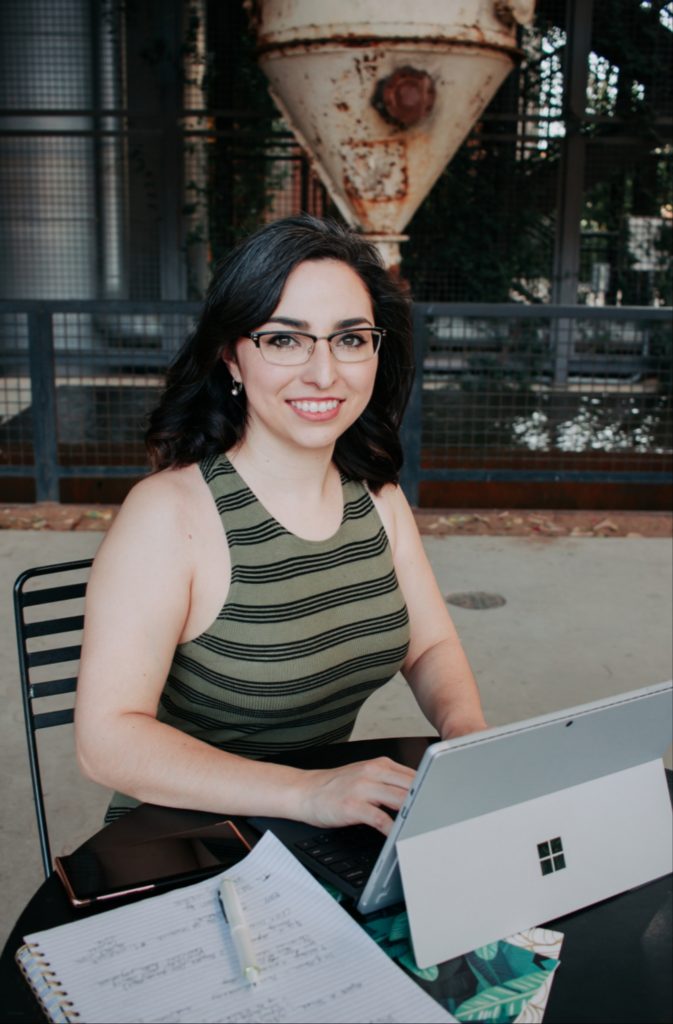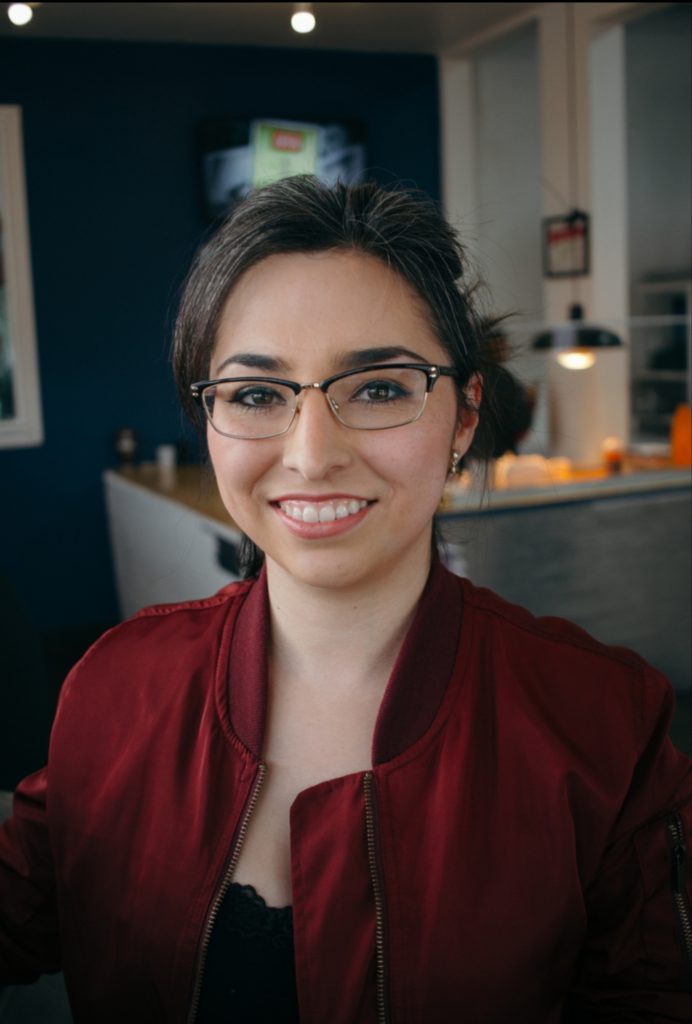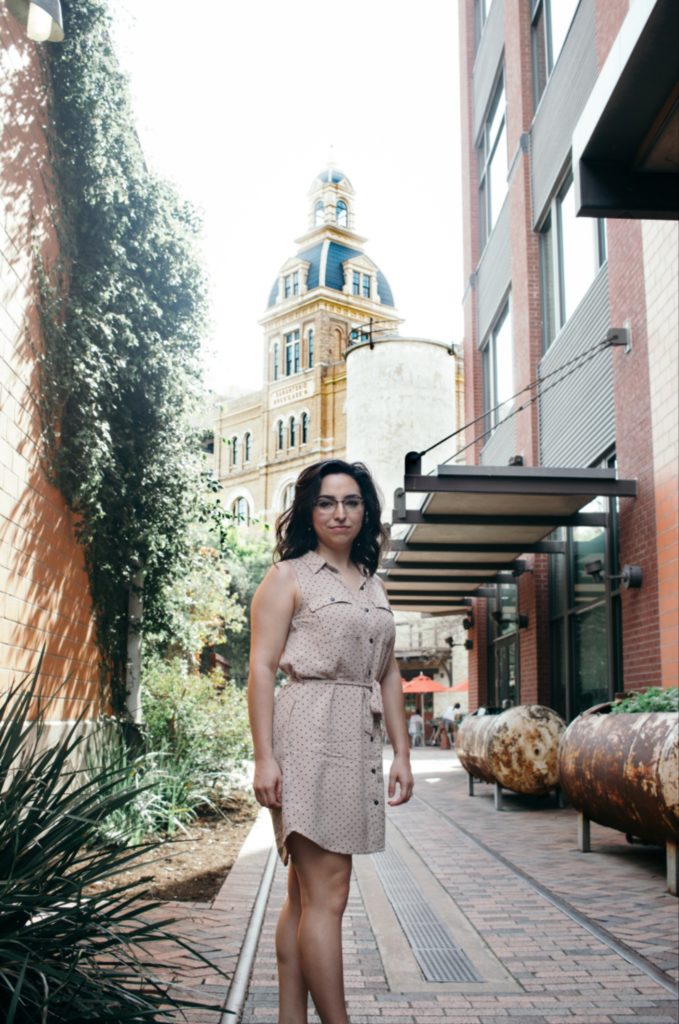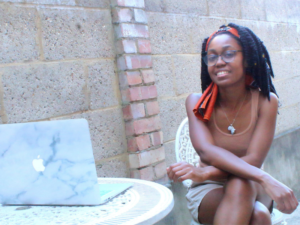This week’s interview features long-term freelancer and virtual assistant, Victoria Vela. Here, she shares her freelance journey and tips.
What influenced you to become a freelancer?
I started out as a musician so the idea of living as a freelancer was something I always expected. I didn’t expect that I would end up owning an online business and freelancing as a Virtual Assistant!
I’m extremely introverted, and it was difficult for me to work in “office” environments. When I got to work I was in “work-mode” not “socialization-mode” which I think made me appear cold or aloof to other co-workers who thought I was weird for not engaging in their conversations.
I also always loved the idea of being my own boss, having control over my own schedule, and really the only way to have that type of control is to work for yourself.
How did you start out freelancing?
I actually started out freelancing as a college student. I needed to earn some money while I was in school, so I started my first business teaching piano lessons in people’s homes.
I started the business, did all the marketing, found my clients, managed the business, lesson-planned and taught the lessons while going to school FULL TIME! So, I’m used to having a lot on my plate.
Are you a full time or part-time freelancer?
I’m currently a part-time freelancer. I still do teach some piano lessons as well as run my VA business.
It’s hard to let go of teaching when it’s still something I’m good at, something I enjoy, and something I’ve been doing for so long!
How long have you been freelancing?
Beginning with starting my first piano-studio business, it’s been about 13 years of freelancing.
How did you transition into becoming a freelance VA from a piano teacher and why?
When I chose to study music in college. I originally did it with the intention of becoming a Professor at some point. However, there’s been a lot of changes just in the last decade in how music departments are run.
There’s less job-opportunity, less job-stability, so I remained teaching private-lessons for 13 years.
One of the greatest challenges of working in music – in any capacity – is the public perception of our “worth”. People think that studying music is easy. That students choose to be a music major because they’re too dumb to study anything else.
After about a decade of teaching in music and being undervalued by clients, it became difficult to see myself doing it for the rest of my life.
I also had that same desire to be my own boss, control my schedule, have the freedom to take a vacation or time off if I needed it.

So I started learning about online businesses and finding ways to freelance online. Before September 2019 I had never heard of a VA before. But when I learned about what they do I realized, this is exactly what I’ve been doing working as a piano teacher!
I manage a calendar with 50+ appointments every week, I correspond with clients, create systems for communication, organizing events, train people how to use applications for streamlining those systems. Being a teacher has made me very open and flexible and these are the same qualities that make me a good VA.
As a teacher I worked hard to find the right way to help my students accomplish their goals, no matter what their strengths were. As a VA, I help my clients find the right systems and solutions that are right for their business, no matter what stage they’re in.
Do you think it’s important to have a niche?
I do, because without one, it’s difficult to speak to your target audience. The most effective copy will only work if you can speak directly to your client’s needs, fears, and offer a solution that fits their situation. And niching down is different than finding the RIGHT niche.
When I started out, I began with a niche of “creative freelancers”: Graphic designers, photographers, artists. The clients I attracted though, were creative, but they were coaches. The creative freelancers, weren’t necessarily in the right mindset to be ready to reach out to a VA for help with their business. They tend to be stubborn, and fiercely independent, and want complete control. Exactly like me. Which is why I wanted to work with them!
But female coaches are just as creative and they’re goal-driven and open. Also, like me. Which is why I think I work so well with them.
What would you describe your niche as?
My niche has become creative female coaches. The type of women who are great at generating lots of ideas, but either: a) have difficulty executing a system to accomplish their ideas, or b) who are too busy managing their business to put time into making their creative ideas a reality.
What resources have you found useful as a freelancer?
I think the most valuable resource I’ve found has been business coaching. I started out knowing that I could start a business, I could create systems, work with clients, but I didn’t know how to grow a business. So one of the first major things I invested in was business coaching with Klyn Elsbury. And everyone always says that business coaching changed their business. But it REALLY changed my business.
I seriously made a complete 180 in one week. I’m still using the lessons I learned from her now, and even though our sessions have been over for a long time, I feel like I still have direction for where to go.
What method do you find most useful in finding clients?
I think Instagram has been the most useful method for driving traffic to my website and having clients find me. I found it really difficult to get started, but once I figured out my niche, and created a strategy for how to speak to my target clients, I started to see great results. It also helped to finally pin down a system for consistent content creation.
While it used to take me days to create a month’s worth of content, today it only takes a few hours.
What do you like most about freelancing?
I like being able to work with the type of great people I enjoy working with, to have control over my schedule and the flexibility to deal with all of those “life moments” that you would normally have to take sick days or vacation days to deal with.

What challenges have you found with freelancing, and how do you battle through them?
I think the greatest challenge is always communication. Making sure a client understands how you work, the scope of your responsibilities, and the boundaries you’ve created for yourself.
I’ve noticed that a lot of freelancers fall into a space where they feel that they have to please the client no matter what, even at their own expense, and that’s so not true.
This is also one way that working as a piano teacher prepared me to run an online freelancing business because I encountered so many clients in my piano teaching business who signed a contract and then decided, my services weren’t worth the amount they agreed to pay me, that they didn’t have to pay me on time, that they could schedule lessons at their convenience rather than at my availability.
So I’ve learned to create the boundaries, stand up for myself and enforce the policies that I put in place to protect my income and my time.
What tips do you have for those wanting to do freelancing or build their own business?
1) Think about what boundaries you need to put in place to create a healthy work/life balance so you can actually enjoy freelance working.
2) Create the boundaries you need and put them into your contract.
3) Finally, take care of yourself. Build time into your day for breaks, self care, lunchtime, vacations. Make the business work for you.
What 3 words would you describe your freelance work as?
1) Supportive
2) Customized
3) Flexible
What do you like to do in your spare time?

I spend my free time with my husband and my dogs, watching movies, playing video games, cooking & trying new recipes, and of course playing piano.
How do you find the work/ life balance being a freelancer? Do you have any tips for this area?
1) Its a challenge! Especially if you love what you do, it’s easy to get into a really focused zone, lose track of time and forget to eat lunch.
The best way I’ve found to maintain that balance is to build self care into my daily routine.
It’s also really important to have vacation time pre-determined because I’ve seen so many freelancers get stuck in a place where they don’t take vacation time because they feel like they’re letting their clients down. If your clients don’t understand and respect that you need time off, they’re not good clients!
What key characteristics are needed to become a freelancer?
I don’t think they’re the only characteristics necessary to become a freelancer, but the characteristics that I attribute to my success as a freelancer are my: independence, self-motivation, focus, communication skills, patience, flexibility, and ability to take initiative.
What is the proudest project you have worked on?
I’m proud of everything I work on. I really enjoy helping people and my clients are all coaches so they also make a business out of helping others.
Anytime I can help them reach the people they need to help, I’m happy.
Anything to add?
I love freelancing and it’s extremely rewarding, building my VA business has been my dream.
I’m thankful for the years I spent teaching piano because it prepared me to weather the challenges of building a freelancing business.
In order to be successful, I think you have to have a really strong mindset to handle the complete independence, you have to be very business-minded to continue to scale outside of just doing project-based and contracted work, you have to have a lot of self-compassion to make sure you’re not only working for yourself but also taking care of yourself, and you have to make sure to celebrate the little wins.
If you are looking for a Virtual Assistant, you can check out Victoria’s website here: https://www.mockingbirdvirtual.com/mockingbird-links
Also, if you a Beginner Freelancer looking for some tips on how to set up and build your business, I offer a Beginner Freelancer E-course just for this. Or perhaps you would like a compact 1 21 strategy call session, which I also offer.




